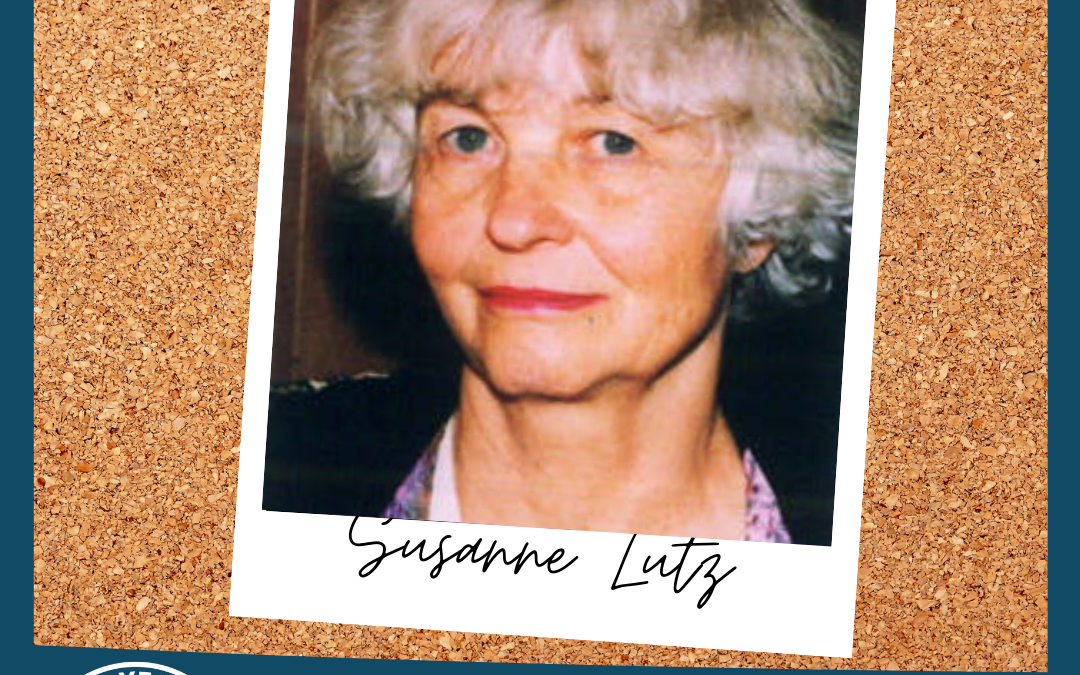“As you grow older, having young friends becomes more important“.
Susanne Lutz spends her holidays abroad far away from all four-star hotels. Instead of lying by the swimming pool, the seventy-year-old prefers to participate in the construction of African mud houses or the maintenance of Bulgarian nature reserves – hand-in-hand with twenty-year-olds.
She reports: “I am not one to get scared easily. But just before I went to Chiapas in Mexico for two months as an international observer, I was quite nervous. After all, the province had been the scene of unrest for years. The indigenous population is fighting for more rights; there is a threatening military presence there of about 73,000 men. With their presence, the international observers try to prevent attacks by the troops. However, when I arrived in the small indigenous village near the border with Guatemala, I felt calm and composed. I walked along the nearby highway for a few hours every day and observed the troop movements.
I travelled there with a 25-year-old man from Zurich. After the preparatory course he asked me if we wanted to travel together. I wouldn’t have dared to ask him myself; I was too afraid that he would think: “The old woman can’t make it alone; she needs someone”. I was very pleased with his request. I accepted immediately and we had a good time together. We are still friends today. The age difference of 43 years does not matter. I think it‘s a question of mindset.
I am seventy-one years old now. I am divorced, my four children go their own ways. Several of my friends of the same age have already passed away – you have to make sure in time that you don’t become lonely. I think it is important for old people to find younger friends. At a class reunion, I was once asked: “Why do you do those assignments abroad? I answered: “Because this is how I make new friends”. Someone said: “I already have friends. I don’t need any new ones”. This is an attitude that I will never understand for as long as I live!
Every year I work in an international workcamp for two to four weeks. Twice already I have been to Nigeria in Africa, where the outreach was organised by a church in Pennsylvania. I am still friends with the group leader, a young Swiss theologist and his wife. I regularly look after their little son Noah.
In 1999 I was in Bulgaria with Service Civil International and helped free a nature reserve from waste. In 2000, I was in Turkey, also with SCI, in a small village, eleven hours by bus from Istanbul. There, the smallholders, former nomads, live off fruit growing.
During these work assignments I gain insights into the everyday life in another country, and get to know the people there in an uncomplicated way. During any stay, it is important for me not only to ‘ladle the cream of the milk’, as they say in Bern, but to get to know the whole range of life in the host country. I eat what the locals eat every day – not just their Sunday meals. I do not sleep in a soft hotel bed, but in huts or schoolhouses. But when I choose my assignment, I do make sure that I don’t have to sleep in a tent – that has become too difficult for me by now.
During my stays I gain intense impressions, beautiful ones and others. The infant mortality in Africa has shaken me deeply; that is really terrible. In Turkey, I experienced at a wedding feast how old customs begin to crumble under new influences. As demands tradition, the men danced at the one end of the village; the women at the other. But they no longer danced to their folklore music, but to the pounding sounds of disco. Judged by their rather clumsy movements, you could see how strange and unfamiliar this music was to them. That made me think a lot. But then there are also many wonderful experiences: the hospitality, for example, is so much greater in many countries than here in Switzerland!
No doubt, I am old. Painful arthrosis in my feet gives me a hard time. You can’t deny such signs of old age. Nevertheless, retirement has been the best part of my life. I can organise my days myself and am free from having to always search for work. I can do a lot of things that I didn’t have time for many years before.
I really appreciate the feeling of being useful during my work assignments. I think many early retirees could also benefit from this. Nevertheless, everyone has to make their own judgement on whether such assignments are for them. You have to be physically and mentally fit. It’s important that you really feel confident about staying in a foreign country with different hygienic conditions. Good language skills are also an important requirement. English is required for most assignments. And then you have to be able to fit into a group of young people to a certain extent.
I am always very careful not to slip into the role of someone who knows everything better. Sometimes I have to hold myself back. When I saw three young Japanese women in Bulgaria the summer before last making spaghetti for dinner and serving it cold because they had cooked far too early, I couldn’t just watch. I suggested to the three women to mix the spaghetti with the sauce and heat it up. At first, they were annoyed that I interfered; I did notice that. But then they joined in and it turned out well.
Up to now, I have always gotten along very well with the young people and have taken many wonderful memories home with me. In Bulgaria, there was this warm spring near our accommodation which formed a pond. In the evening before going to bed, we would slip into our bathing clothes, go into the water, stand in a circle and together look up at the huge starry sky in the silence of the night. That was a ritual. We belonged together. I will never forget the magic of these moments.

